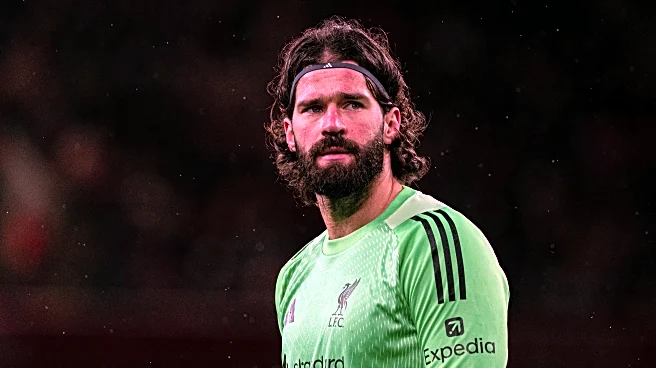What's Happening?
The Atlantic's Books Briefing highlights the influence of sports literature on fans and society, focusing on the emotional and psychological aspects of sports. The article discusses John McPhee's 'Levels
of the Game,' which chronicles a historic U.S. Open match between Arthur Ashe and Clark Graebner, emphasizing the psychological struggle and societal implications of the game. The briefing also recommends Andre Agassi's memoir 'Open,' noted for its raw honesty about the complexities of professional sports. The discussion extends to the broader cultural impact of sports, including racial dynamics and historical events, such as Martin Luther King Jr.'s assassination, which contextualized Ashe's achievements.
Why It's Important?
Sports literature offers insights into the personal and societal dimensions of athletic competition, highlighting issues such as race, identity, and psychological resilience. Books like 'Levels of the Game' and 'Open' provide a deeper understanding of the athletes' experiences and the societal context in which they compete. This perspective can enrich the appreciation of sports beyond mere entertainment, fostering a more nuanced view of the cultural and historical significance of athletic events. The discussion of racial dynamics in sports, particularly through figures like Arthur Ashe, underscores the ongoing relevance of these issues in contemporary society.
What's Next?
The continued exploration of sports literature may lead to increased awareness and dialogue about the intersection of sports, culture, and social issues. As more books and documentaries delve into these themes, they could influence public perception and policy regarding sports and its role in society. The recognition of sports as a platform for social change and cultural expression may encourage further academic and media exploration, potentially impacting how sports are viewed and valued in the U.S.
Beyond the Headlines
The examination of sports literature reveals deeper ethical and cultural dimensions, such as the pressure athletes face to conform to societal expectations and the role of sports in shaping public discourse. The portrayal of athletes like Arthur Ashe highlights the challenges of navigating personal identity and public responsibility, offering lessons on resilience and advocacy. These narratives can inspire broader discussions on diversity, inclusion, and the power of sports to drive social change.










